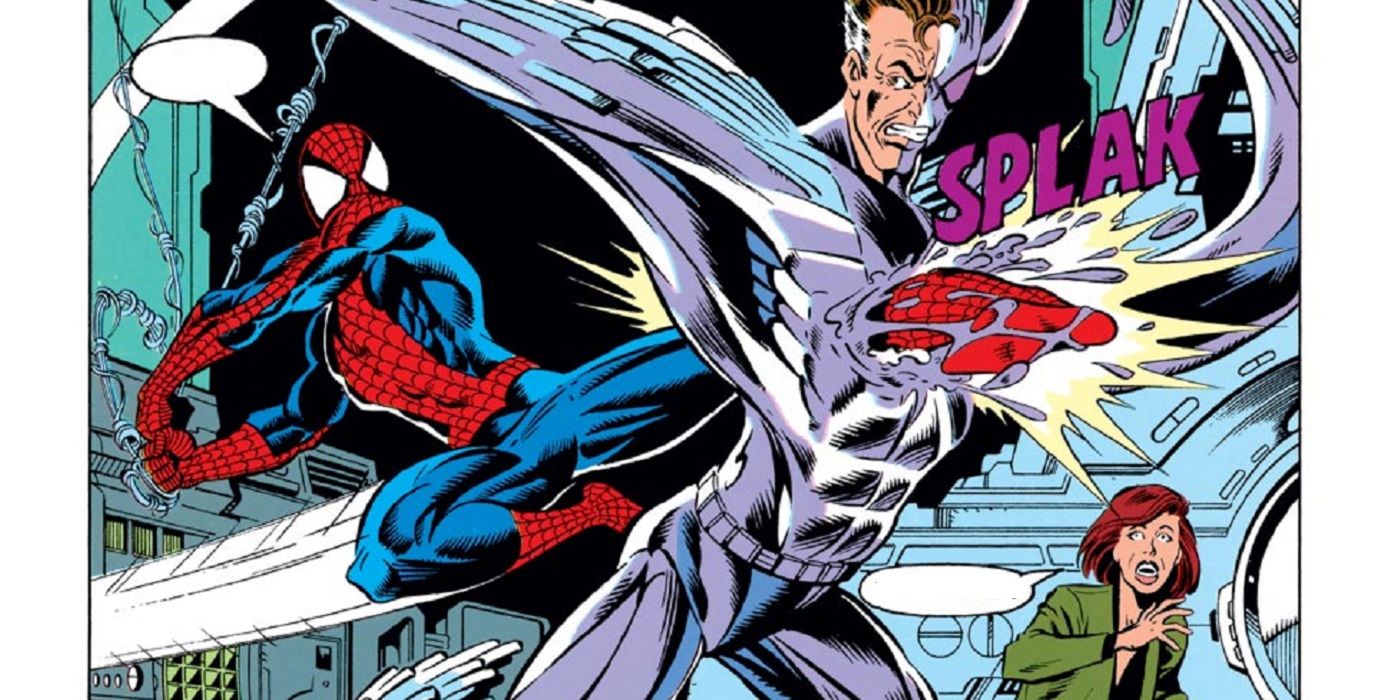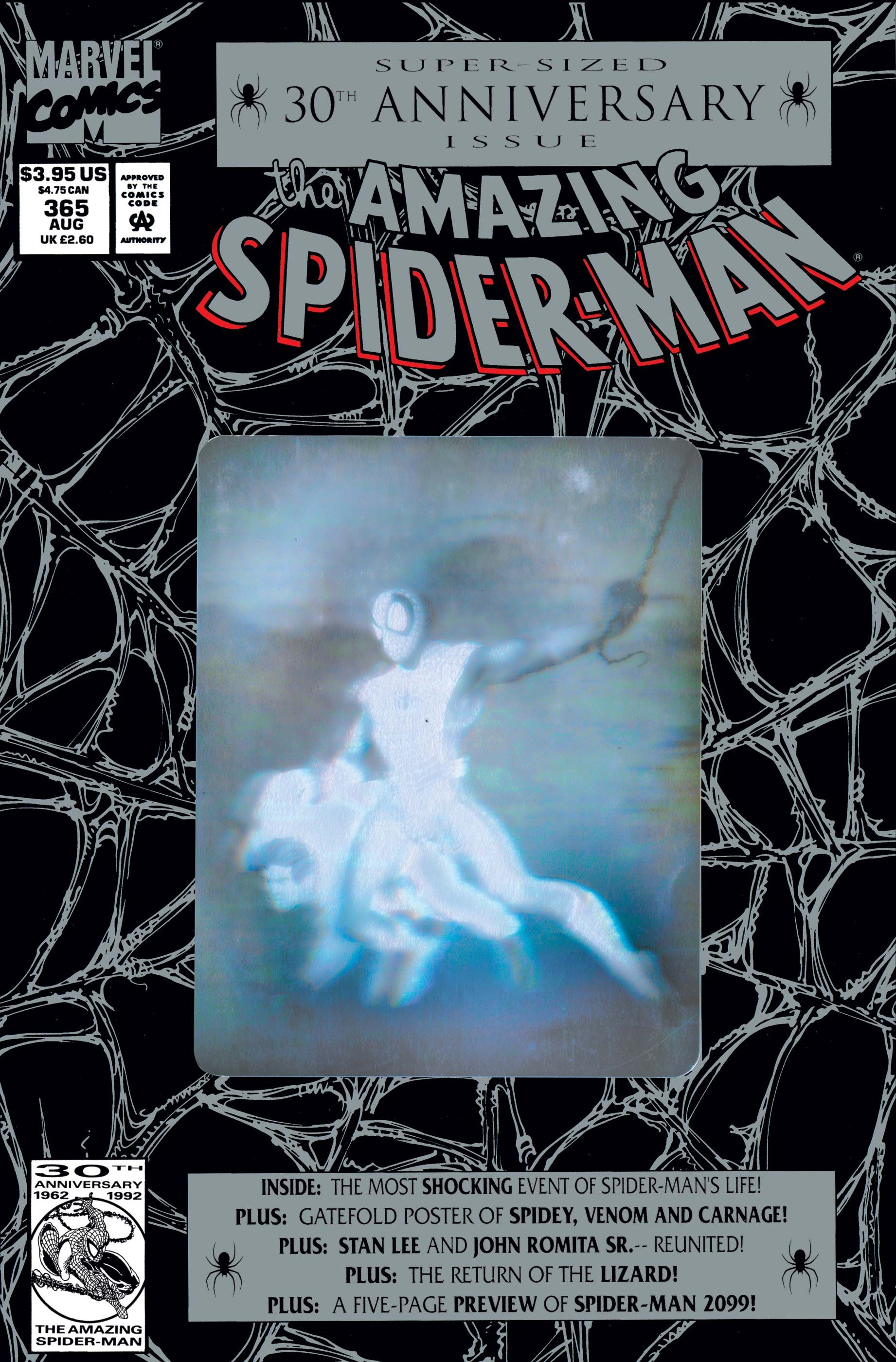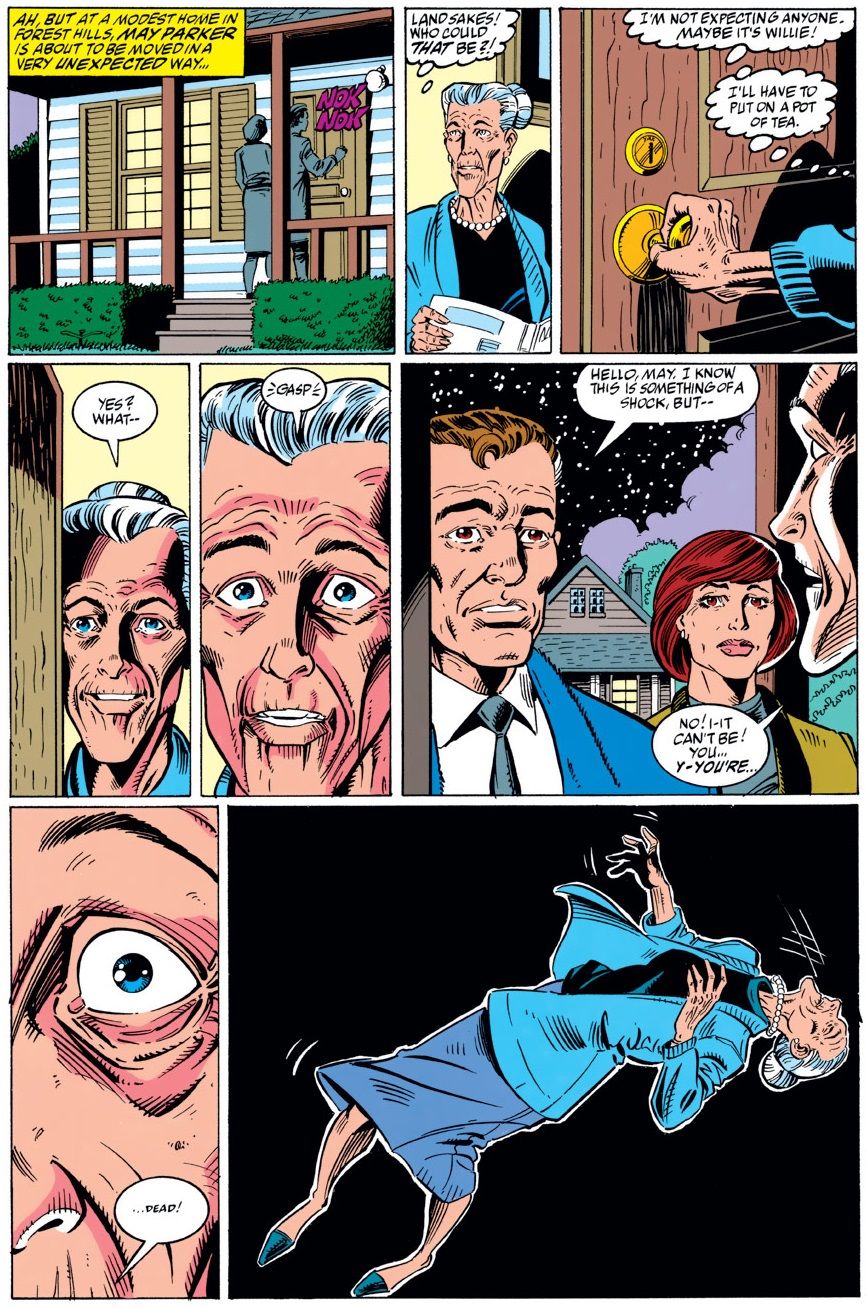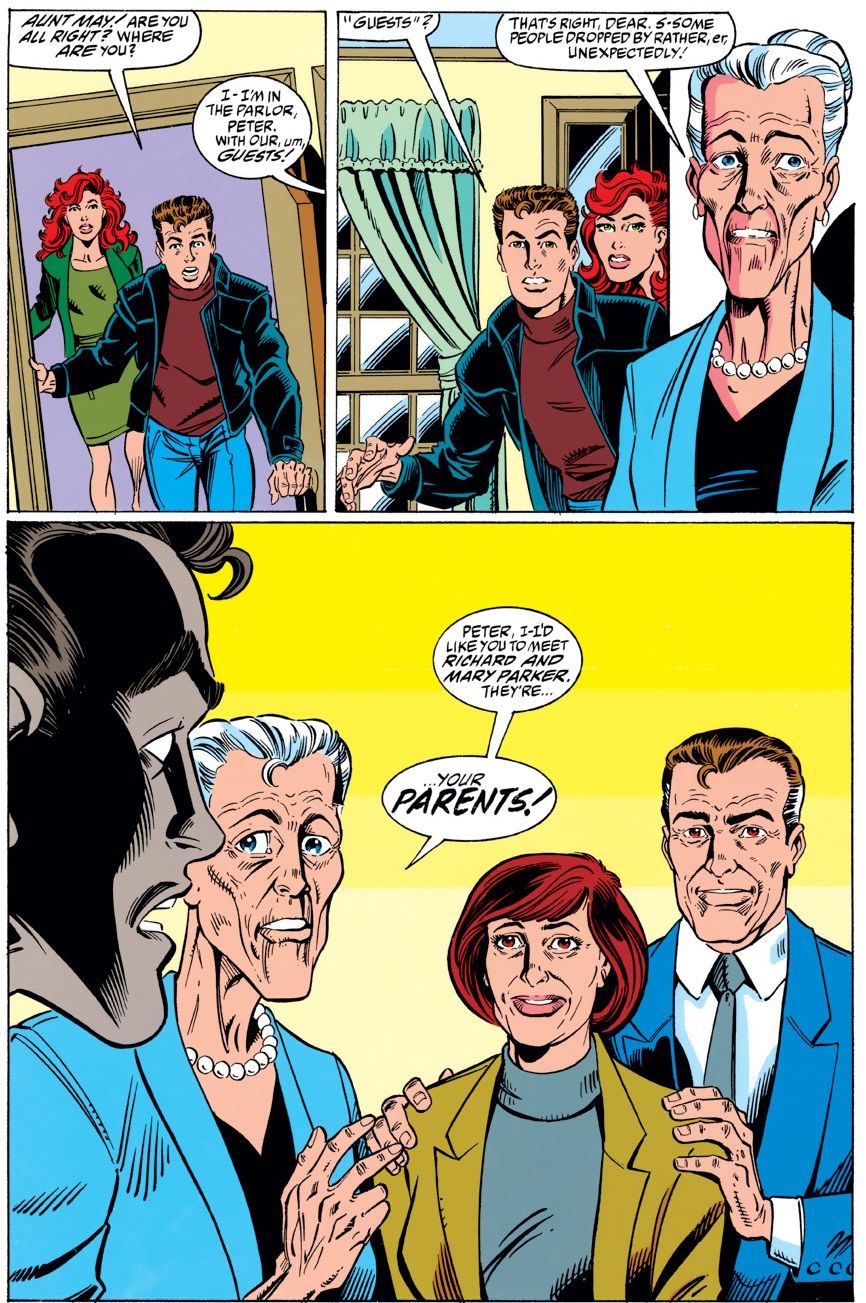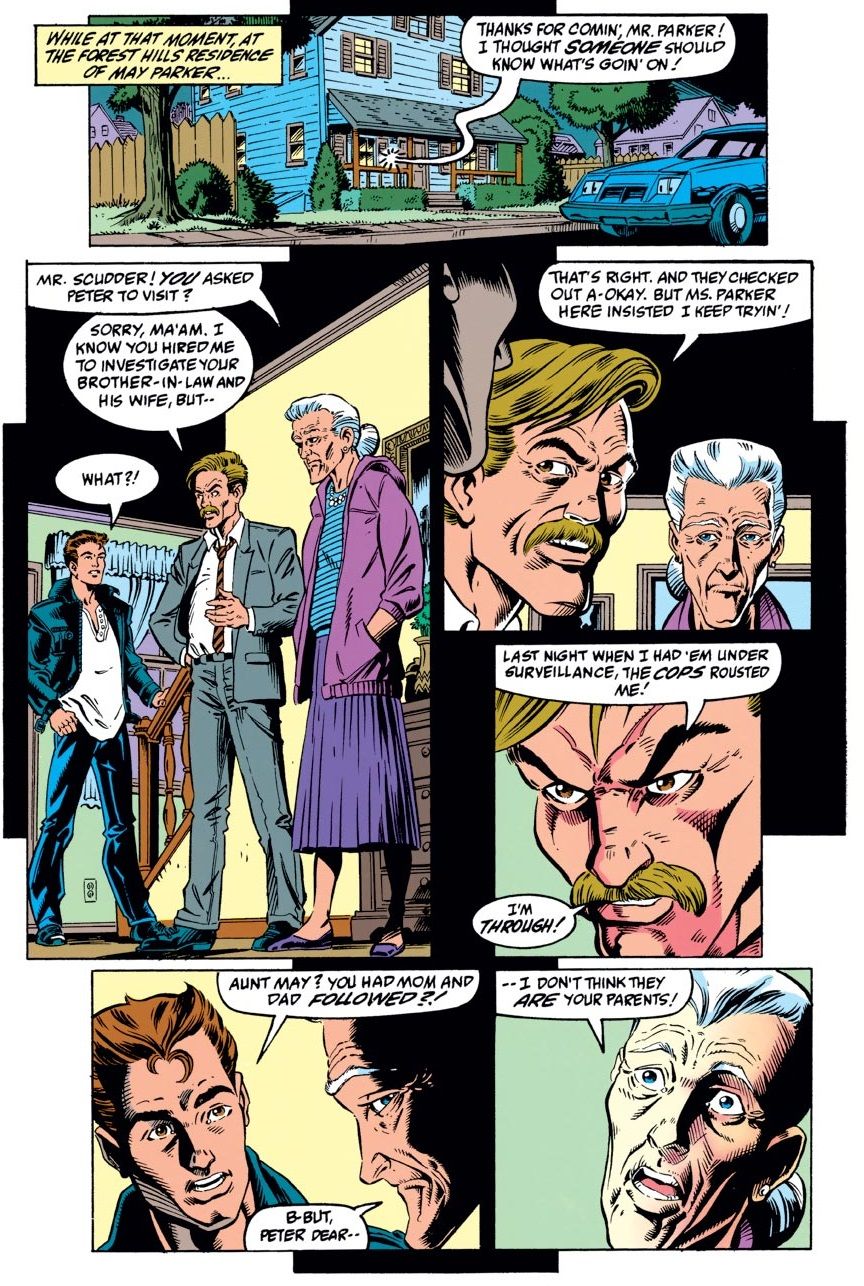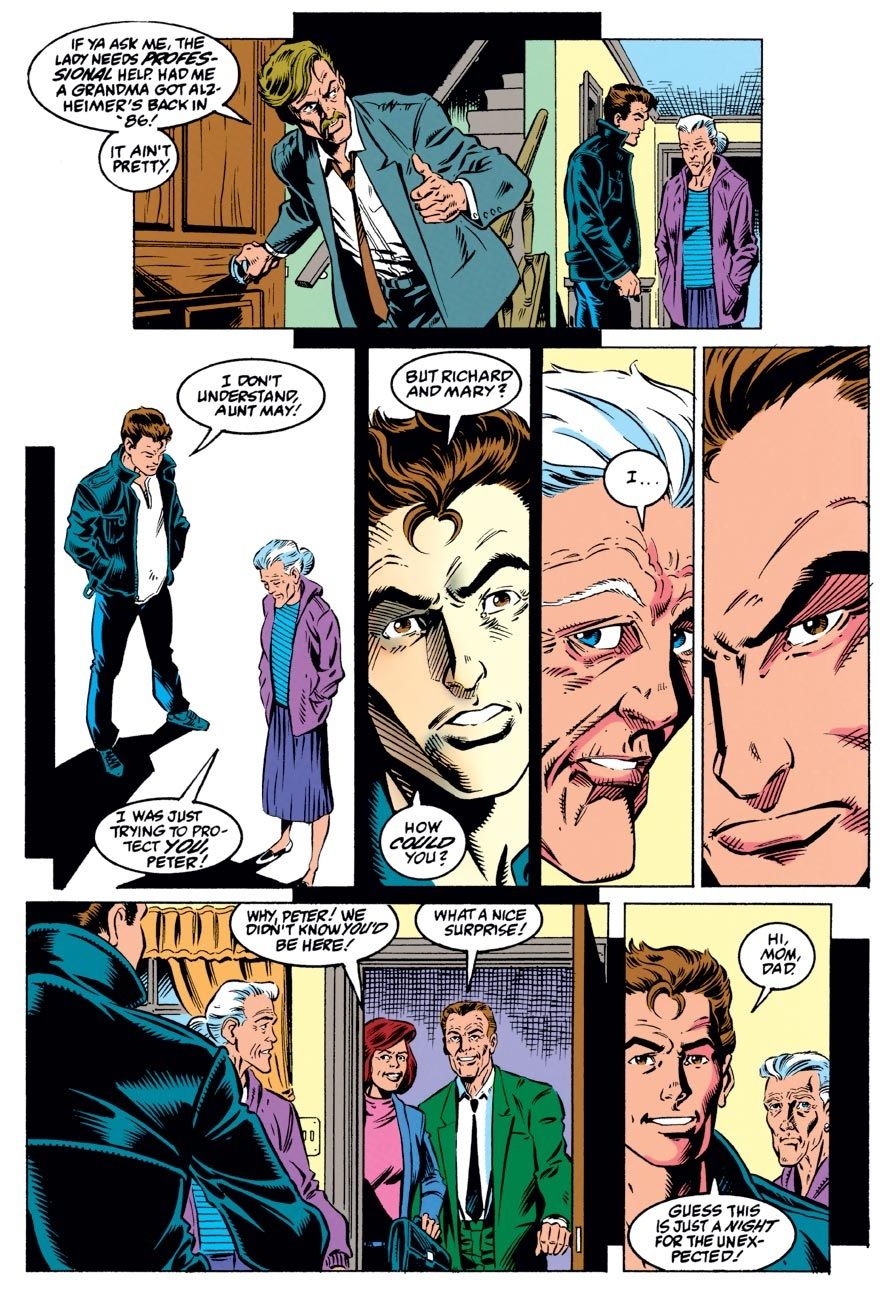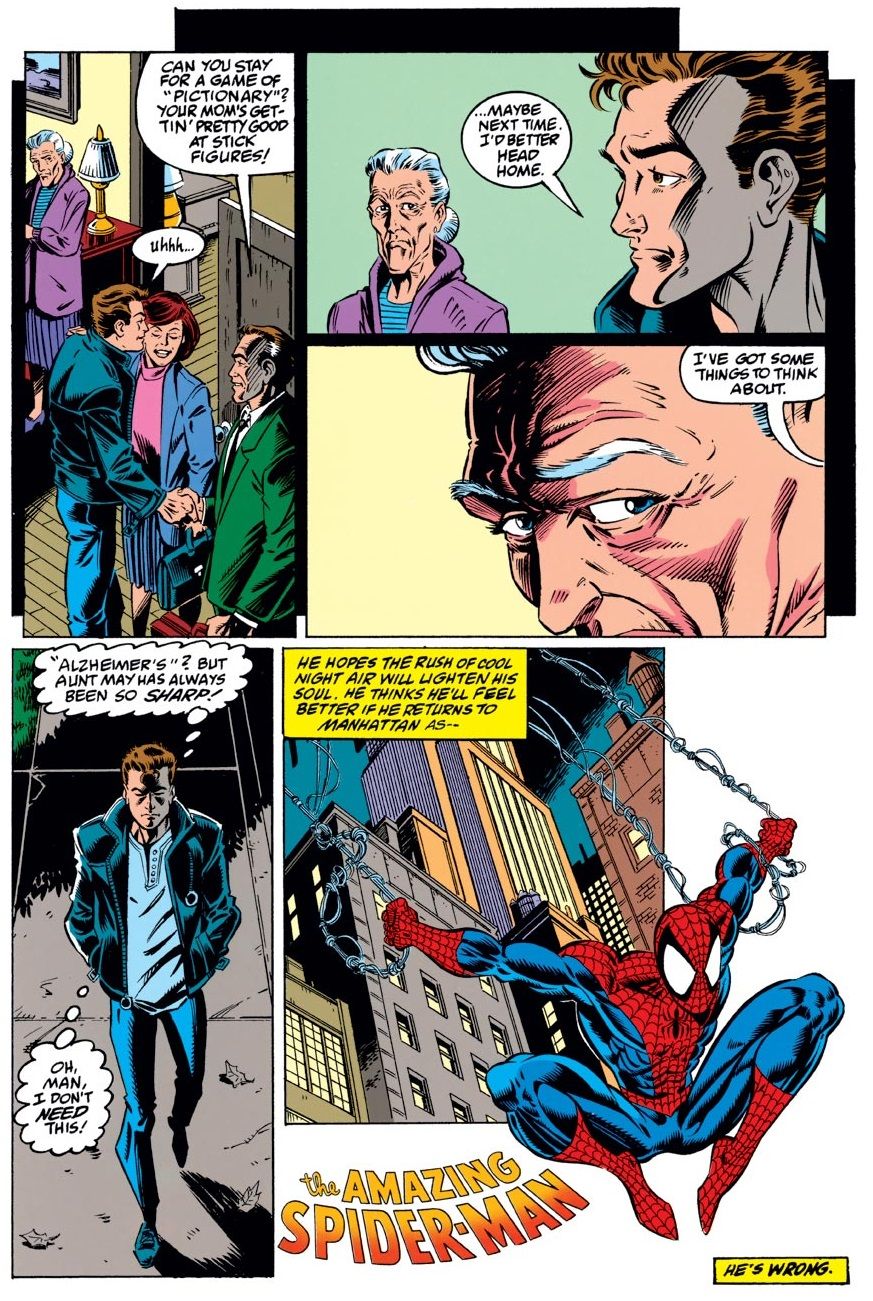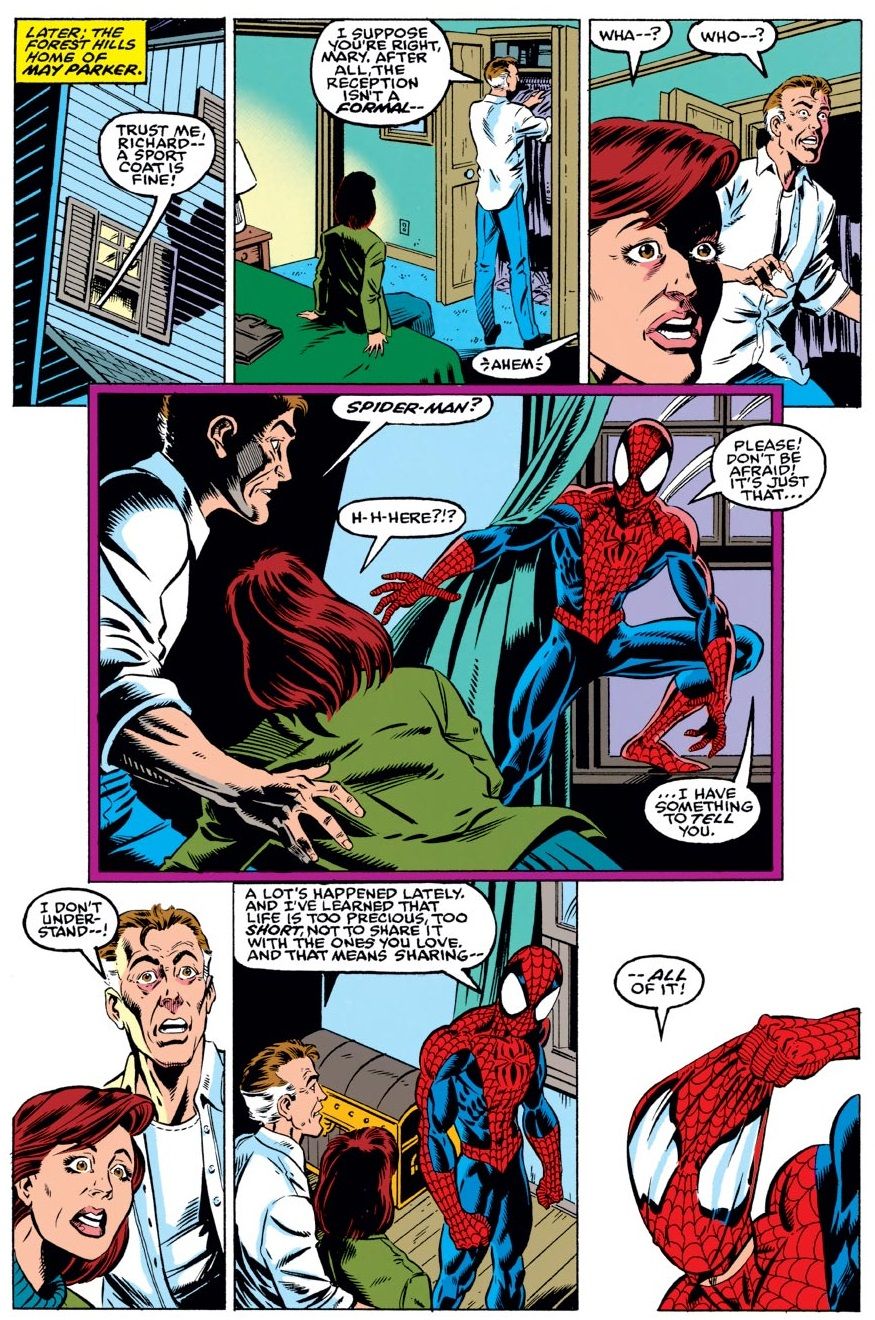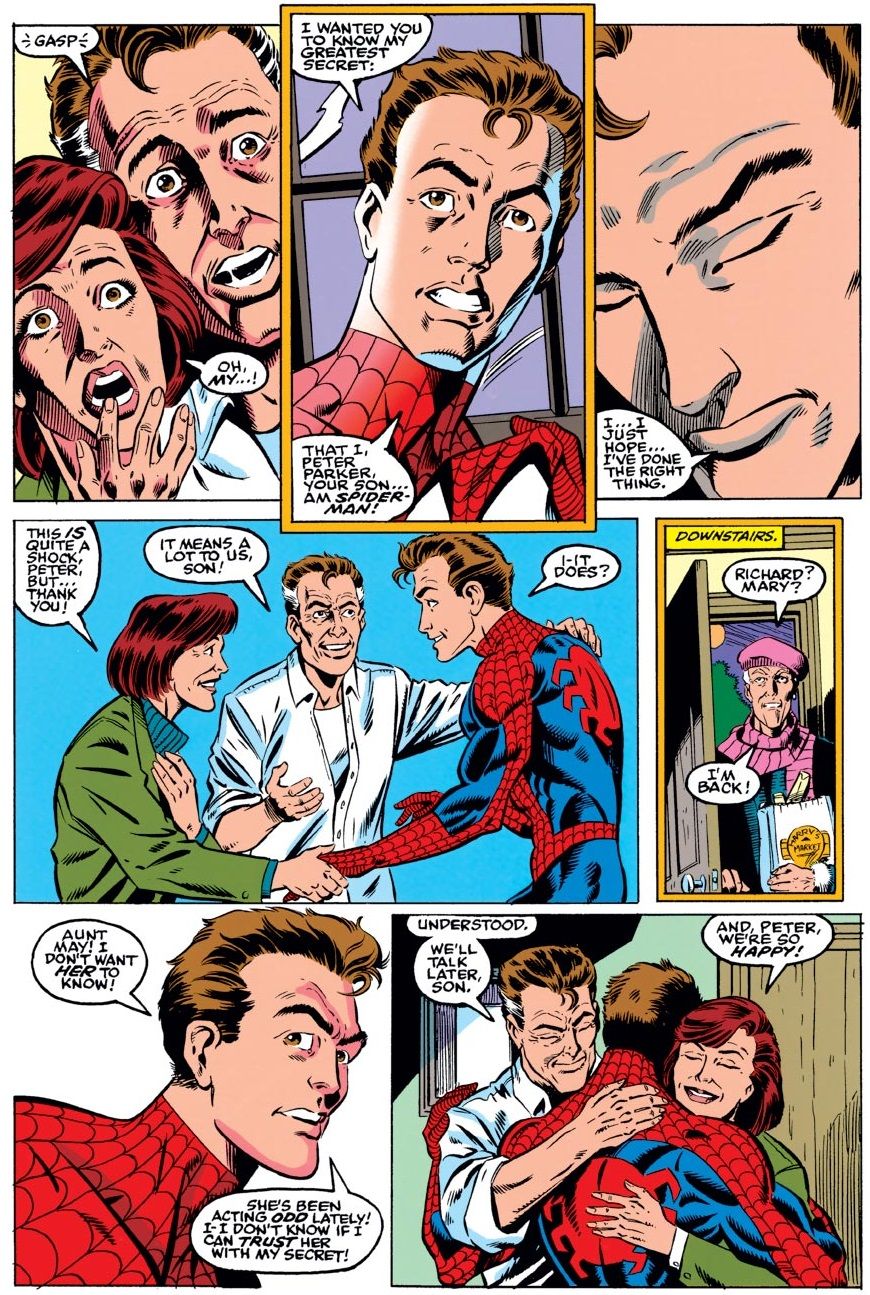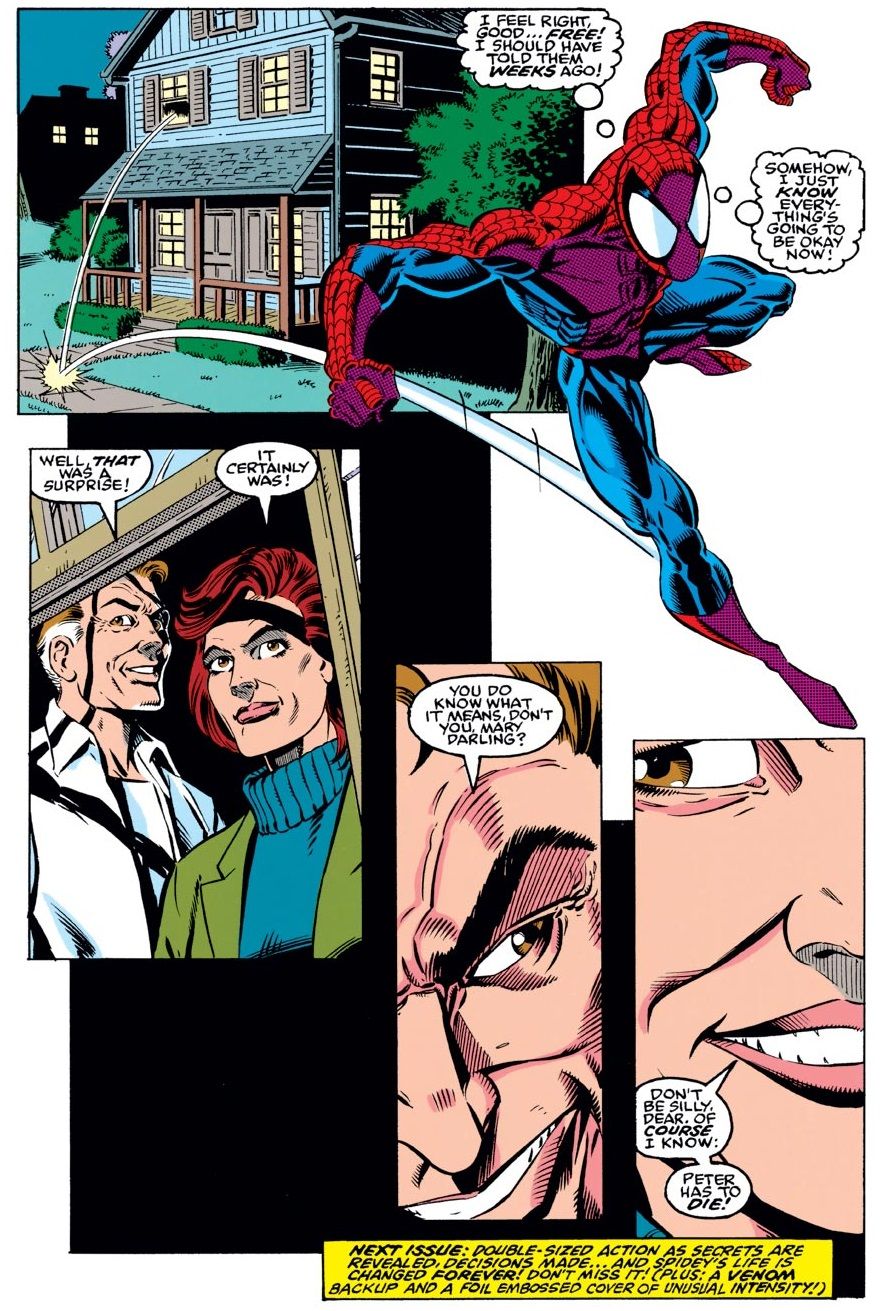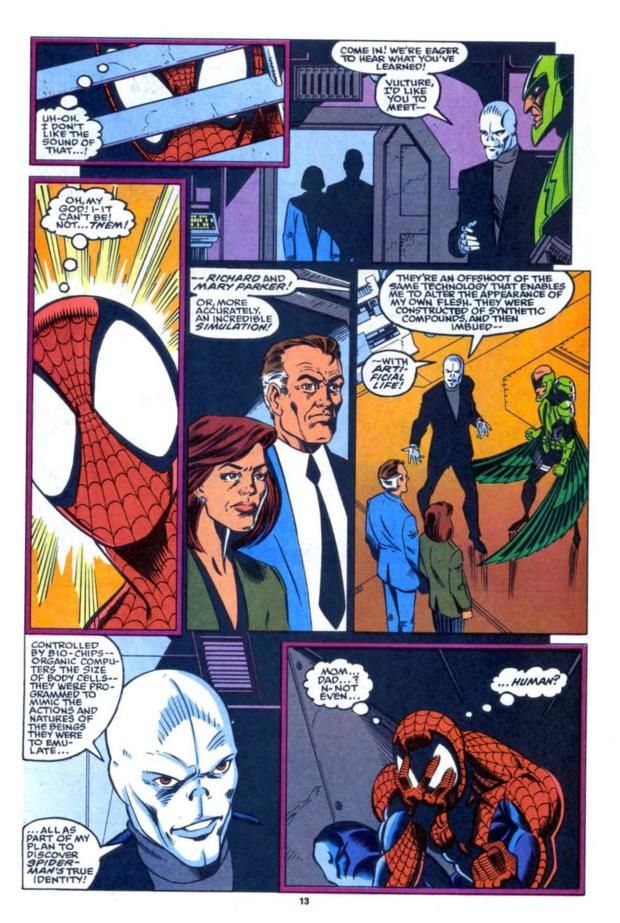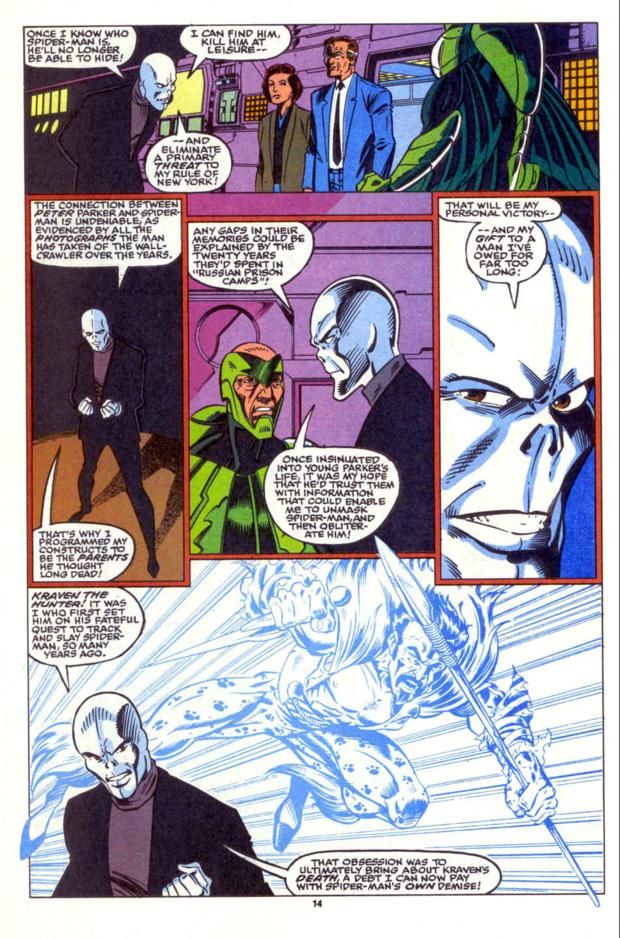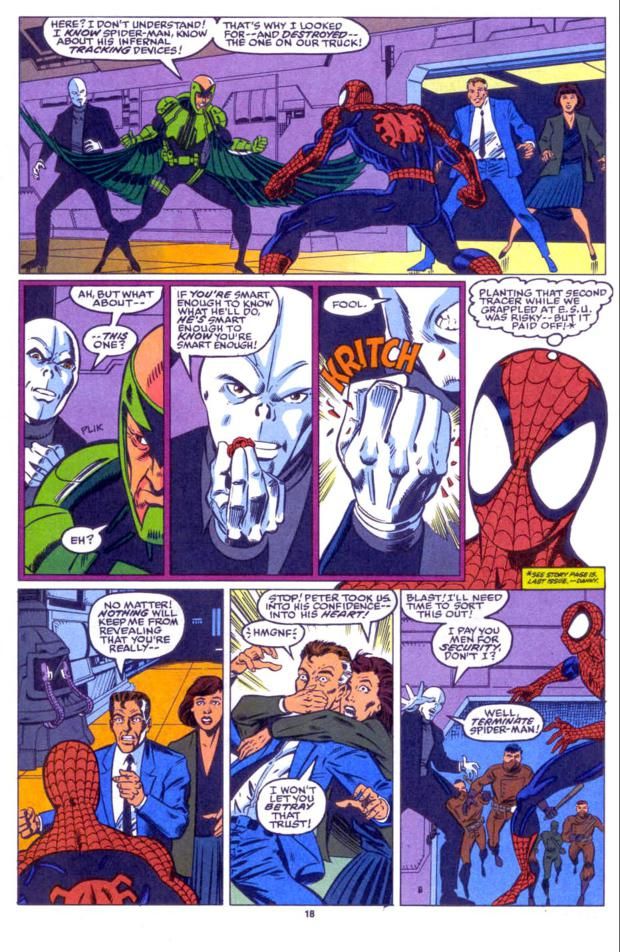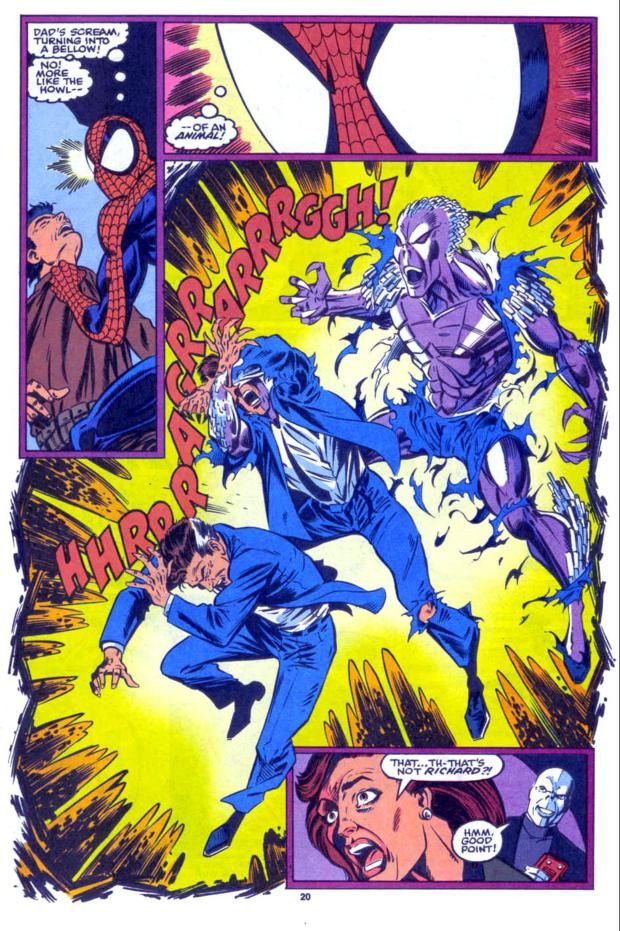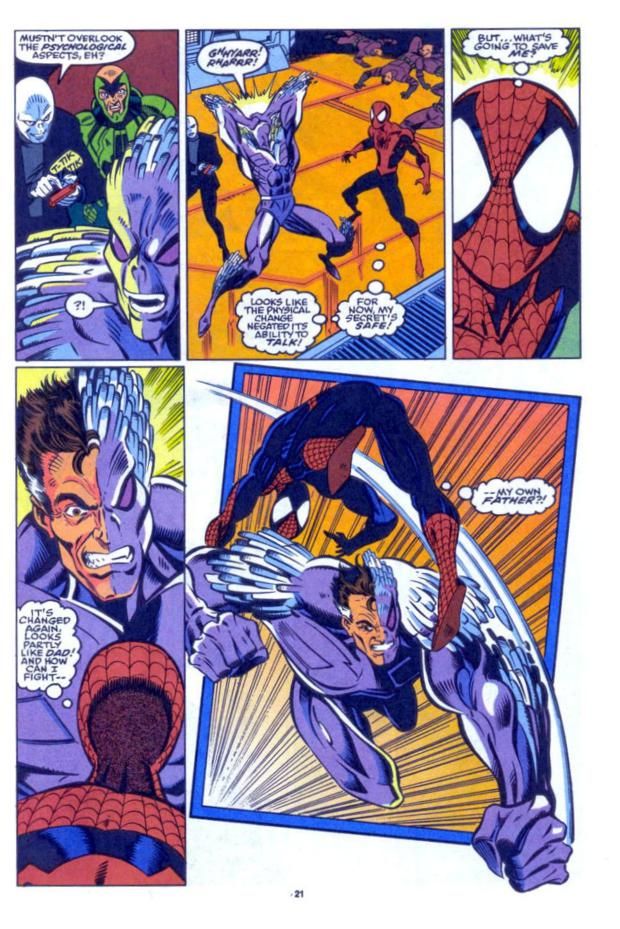This is "Look Back," a brand-new feature that I plan to do for at least all of 2019 and possibly beyond that (and possibly forget about in a week, who knows?). The concept is that every week (I'll probably be skipping the four fifth weeks in the year, but maybe not) of a month, I will spotlight a single issue of a comic book that came out in the past and talk about that issue in terms of a larger scale (like the series overall, etc.). Each week will be a look at a comic book from a different year that came out the same month X amount of years ago. The first week of the month looks at a book that came out this month ten years ago. The second week looks at a book that came out this month 25 years ago. The third week looks at a book that came out this month 50 years ago. The fourth week looks at a book that came out this month 75 years ago.
Today, we look at the time that Spider-Man had to fight robots that believed that they were his parents!
Our story began in the 30th Anniversary of Spider-Man (you know the 30th anniversary was a big deal because it had a freaking HOLOGRAM ON THE COVER...
)
So 1992's Amazing Spider-Man #365 (by David Michelinie, Mark Bagley and Randy Emberlin) sees Aunt May get some shocking visitors...
Seriously, Aunt May is so fragile you would think that a slight breeze would cause her to faint.
Later, Peter comes to visit her and sees that these visitors are his parents! Yep, his his presumed long dead parents are actually alive...
They apparently were just in a Russian prison camp for twenty or so years.
So the next twenty issues show Peter getting to know his parents. However, Aunt May is not so convinced. She hires a private investigator, and the P.I.'s search comes up negative, which is where we are when "Lifetheft" begins in Amazing Spider-Man #386 (by Michelinie, Bagley and Emberlin)...
Now, Aunt May actually had some really good reasons to be suspicious, like Richard and Mary getting some really important facts wrong, but she somehow doesn't bring up any of that in front of Peter here. Peter, as per usual, makes it all about him. "Man, Aunt May having Alzheimer's would be so inconvenient for me!"
That brings us to the next issue, where Peter reveals his secret identity to his parents...
As you might imagine, this is where things get REALLY weird..
Page 2: [valnet-url-page page=2 paginated=0 text='Things somehow get even stranger...']
Later, we learn their purpose...
If you're thinking, "But wait, isn't that a whole lot of time and effort and scientific breakthroughs just to possibly learn Spider-Man's secret identity from a guy who Spidey knows?" Well, you are correct. It makes no sense.
Spidey shows up, of course. And his mom-bot fights her programming...
His dad-bot, though, not so much. This leads to a rather bizarre confrontation...
That's some creepy stuff right there.
In any event, in the end, mom-bot destroys dad-bot. She is then "killed" by the Vulture, though. As she "dies," she tells Peter how proud she is of him.
After seeing that, the upcoming Clone Saga (which was only issues away) was in some ways a step UP for the Spider-Man titles, plot-wise. By the way, Lifetheft led into a storyline where Spidey hunts down the Chameleon to get revenge (at the end, Spider-Man learns that Harry Osborn was the one who suggested to the Chameleon to go after the Parkers. What a jerk).
If you have any suggestions for February (or any other later months) 2009, 1994, 1969 and 1944 comic books for me to spotlight, drop me a line at brianc@cbr.com! Here is the guide, though, for the cover dates of books so that you can make suggestions for books that actually came out in the correct month. For the 75 and 50 year old comics, the cover date is three months ahead of the actual release date (so May for a book that came out in February) while the 25 and 10 year old comics have a cover date that is two months ahead of the actual release date (so April for a book that came out in February). Obviously, it is easier to tell when a book from 10 years ago was released, since there was internet coverage of books back then.

